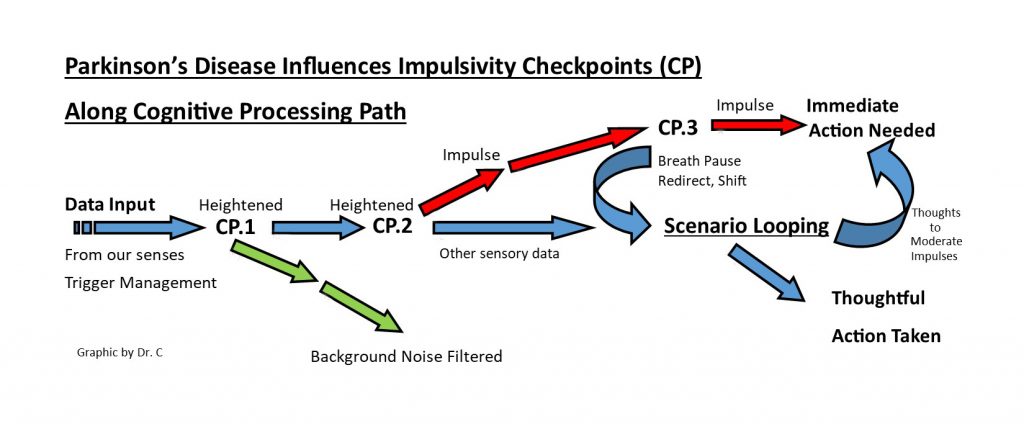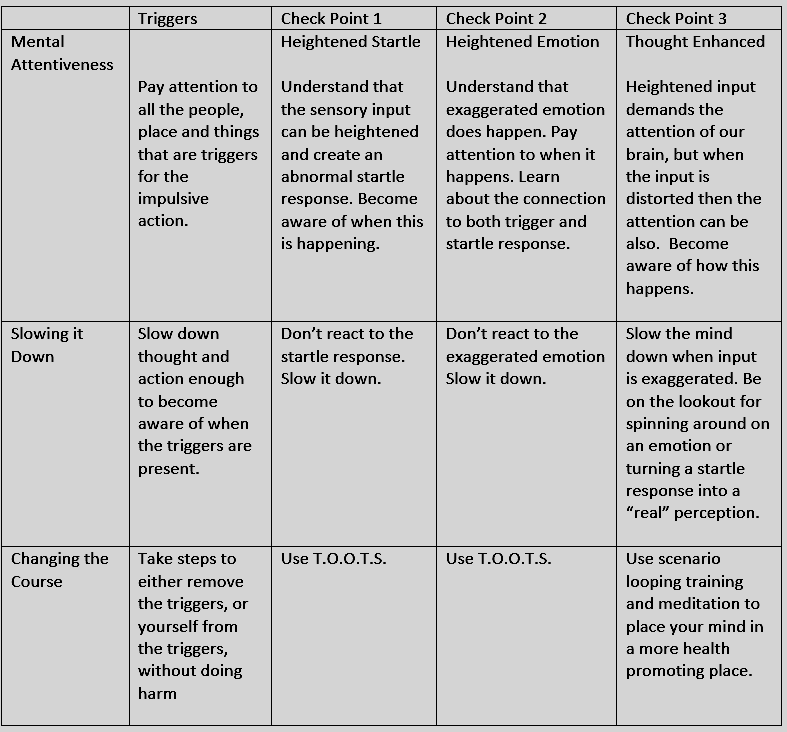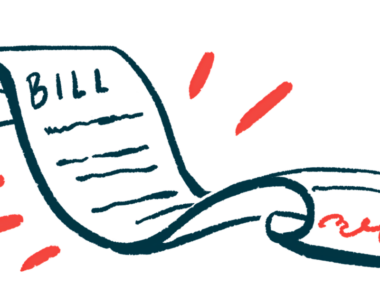Moderating Impulsivity: Train the Brain to Stop the Train
Written by |

Cover art by Dr. C
Brain training happens all the time. The goal of Parkinson’s disease (PD) rehabilitation is to use training to limit the effects of the condition. When training the brain, it is important to be mindful of what it is doing while implementing a practice of mental attentiveness. This specific type of mindfulness is aimed at compensating for issues connected to PD. The rehab program seeks to put a skilled conductor inside our brain, one who is trained to slow down, and eventually stop, the impulsivity train.
The application of mindfulness as mindfulness-based stress reduction (MBSR) has yet to provide clear scientific evidence for its efficacy in treating Parkinson’s patients. The problem is that these studies are poorly designed. However, this is not the same as saying mindfulness is unhelpful. Mindfulness, when practiced frequently, may result in changing the brain structure in PD patients.
To train the brain to stop the train of impulsivity, we act and think in a new way to change the structure of the brain. It is made to be plastic and to change in response to what we do with it.
The Parkinson’s Disease News Today forums are a place to connect with other patients, share tips and talk about the latest research. Sign up today!
When properly applied to PD and impulsivity, mindfulness is composed of three parts: mental attentiveness (focusing attention where it is needed), slowing down the impulse, and changing the course. When putting a rehabilitation plan in place, mindfulness, using these three components, should be directed at the triggers of impulsivity and its three checkpoints (see the diagram below, which was explained in my previous column).
 The following table below explains the application of mindfulness to impulsivity:
The following table below explains the application of mindfulness to impulsivity:

Graphic by Dr. C (T.O.O.T.S. refers to Time Out On The Spot)
The key to impulsivity management is to eventually turn the training into a habit — to almost automate responses to the heightened responses that occur at each checkpoint. This is how we put our brain train conductor to work to stop the train of impulsivity (or at least slow it down) most of the time.
What have you found to be successful in controlling your impulsivity?
***
Note: Parkinson’s News Today is strictly a news and information website about the disease. It does not provide medical advice, diagnosis or treatment. This content is not intended to be a substitute for professional medical advice, diagnosis, or treatment. Always seek the advice of your physician or another qualified health provider with any questions you may have regarding a medical condition. Never disregard professional medical advice or delay in seeking it because of something you have read on this website. The opinions expressed in this column are not those of Parkinson’s News Today or its parent company, Bionews Services, and are intended to spark discussion about issues pertaining to Parkinson’s disease.



Shirley
Could you give a narrative explanation of how this works in a hypothetical situation? thank you!
Dr. C
The "grouch" column that was on irritability, which is a form of impulsivity, includes a narrative. The next column offers one way to apply the brain training rehab. I agree with you that it needs more clarification. I will keep at it in the column to come. Thanks for the feedback.
Jenifer McCay
Can this training be used for chronic pain caused by progressive polyneuropathy?
Dr. C
Hi Jennifer ~ Thanks for your comment. I'm doing a series on chronic pain right now. I invite you to check out my additional columns on the subject. I find that chronic pain occurs with many conditions and hopefully my suggestions and experience, from the Parkinson's viewpoint, can transcend into other conditions that have chronic pain. I appreciate your checking in with BioNews and reading my columns.
Dr. C.